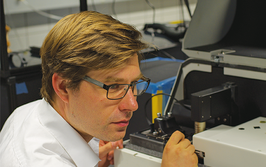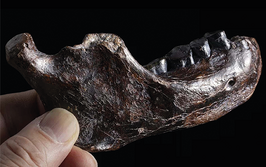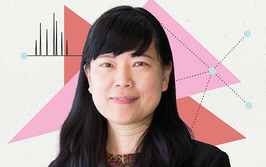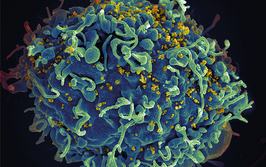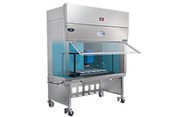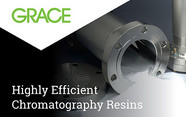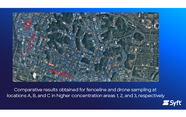Much More than a Push-Button Job
We should be shouting our analytical accomplishments from the rooftops and showcasing our importance in society
Lucas Sternbauer | | 3 min read | Opinion

Credit: Supplied by Author
Does analytical science have a reputation problem? In my opinion, yes. But the answer is more complex. I completely agree with Gert Desmet’s view that analytical science is very often merely considered as a “service technology.” What a lot of our colleagues in different disciplines don’t consider is that without this particular “service” they would not be able to progress as far or as fast as they currently can. We must work on the misconception of our field so people don’t take us for granted.
I’m still unsure where this lack of appreciation originated from – is it a result of poor understanding of analytical fundamentals, possibilities, limitations, and state-of-the-art technology? This may be prompted by the media, especially in TV series, where analytical science is a “push-button job” – giving results in seconds from a black-box instrument with a built-in database. As this looks so effortless, people don’t recognize the effort involved in analytical science and consequently don’t appreciate our work. For those outside the field with no background knowledge, I completely understand that they might think this is reality. However, with some fellow chemists and people in similar surrounding fields, it’s important that we push for greater recognition of the field.
One factor that may be contributing to our poor reputation is that analytical scientists often work behind the scenes and results cannot be seen by the general public. Other fields often provide results to be eaten, drunk, applied to our skins, worn, or used in any other aspect of daily life. In the rare occasion that analytical results are in the spotlight, there’s often a negative connotation, for example, showcasing the growing numbers of emerging environmental pollutants or adding data behind other bad news.
On the other hand, shouldn’t we consider ourselves appreciated when people believe we can analyze anything in a complex matrix at the lowest levels possible? The naivety of the public implies a certain level of confidence and trust in our abilities.
Despite this, we must educate people on the art and scientific craft of analytical science – that it isn’t just a service and must be mastered to be a success. Without the research and development of our field, there wouldn’t be achievements in other scientific disciplines. It’s quintessential to raise the awareness of analytical science and underline its importance in society – something that the media and other fields aren’t going to do for us. Education is a powerful tool but the higher the education level, the narrower our target group becomes. Therefore, it’s crucial that basic analytical education is simple yet impressive to intrigue the public. The media could contribute a little, but the majority of this push can only be initiated by companies or national organizations to catch a broad audience – and that means us!
There’s no one better than an analytical scientist to highlight the magic that’s created in our field. People should see our excitement for the work we do and understand it isn’t trivial at all – our research and development leads to general indispensability in our everyday lives. When our needs, goals, and problems are understood (at least at a minimum necessity level) by our colleagues in other fields, we can foster interdisciplinary collaboration and progress in communication and openness between all parties.
Therefore, communication is and will always be one of the key factors in achieving extraordinary research and development. The more we openly communicate in all directions with other fields and departments, the better the understanding of our discipline will get. By promoting close, successful, and appreciative teamwork, we’re lifting the performance of every discipline involved and enabling positive impacts on society.
Senior Analytical Chemist in R&D within the pharmaceutical industry. Lucas received his PhD in Analytical Chemistry from the Johannes Kepler University in Linz, Austria, and has over 10 years of experience in the field of analytical chemistry – in particular separation sciences and hyphenated techniques, focussing on GC, LC, and SFC, with and without mass spectrometric detection, as well as in sample preparation. For various markets such as food, pharma, environmental, life science, clinical, polymer etc, Lucas has worked in method development and validation, as well as consulting, sales, and business development for instrumental analysis.
